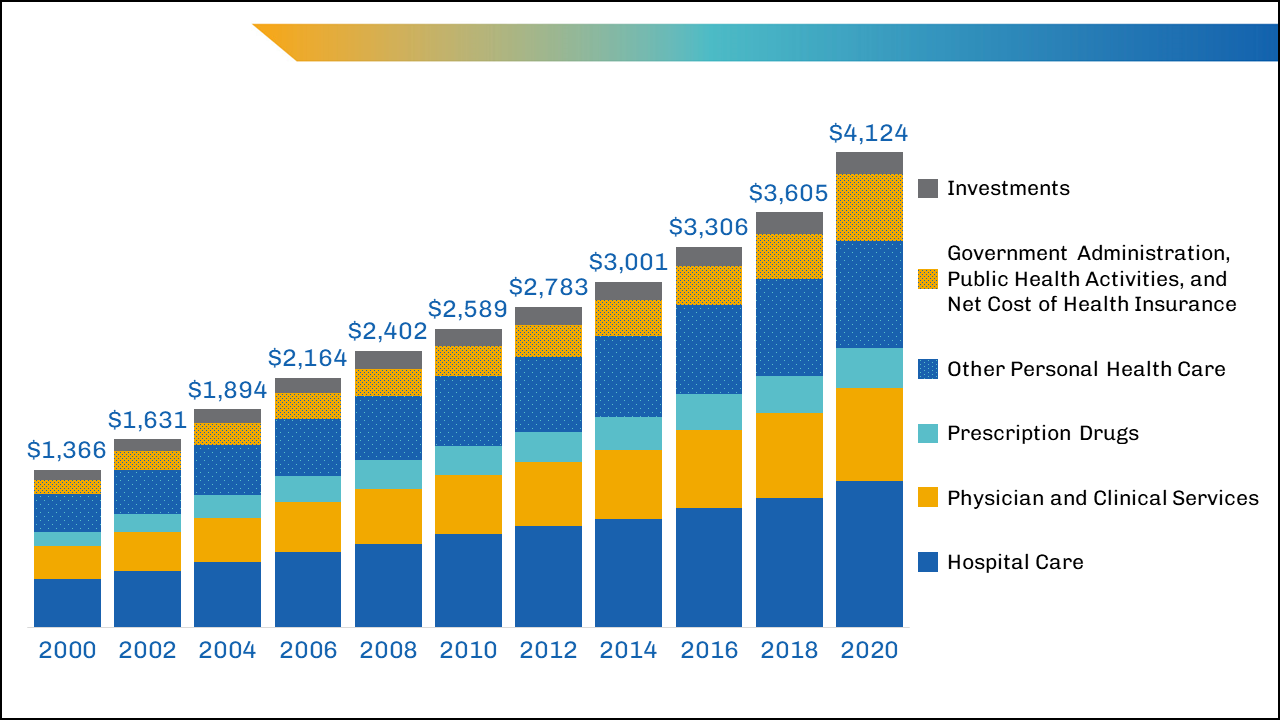Healthcare RCM Solutions for Reliable Earnings Cycle Monitoring
Comprehending the Role of Medical Care RCM in Enhancing Financial Performance and Individual Contentment
Browsing the intricacies of Healthcare Profits Cycle Administration (RCM) is crucial for accomplishing ideal monetary performance while all at once raising patient contentment. RCM's capability to streamline payment, make certain exact coding, and expedite insurance claims refining stands as a cornerstone of modern-day healthcare operations. Nonetheless, the nuanced interplay in between these aspects warrants a better assessment to completely appreciate their influence on both doctor and patients. As we discover the transformative capacity of RCM, concerns concerning its critical application and future improvements beckon, promising understandings that could redefine industry requirements and person experiences alike.

Secret Parts of RCM
In the complicated landscape of health care, Income Cycle Administration (RCM) is critical in making sure monetary stability and operational performance. An extensive RCM system incorporates a number of important elements, each playing an important role in the seamless management of a healthcare service provider's financial procedures. Individual registration and qualification confirmation are foundational steps, making certain that precise client info is caught and insurance protection is verified prior to solutions are rendered. This decreases the threat of claim rejections and speeds up the reimbursement procedure.

Charge capture is an additional necessary component, including the exact recording of services given to individuals. It makes certain that all billable services are represented, thereby making best use of income possibility. Simultaneously, medical coding translates patient encounters into standard codes, which are essential for billing and regulative conformity.
Claims submission and monitoring adhere to, including the preparation and entry of insurance claims to payers. This procedure calls for meticulous interest to information to lessen mistakes and protect against delays. Denial management is a positive strategy to address and fix denied cases, protecting income streams.
Finally, repayment publishing and individual collections finish the cycle, making certain settlements are properly videotaped and exceptional balances are pursued. Together, these elements create a durable structure that sustains the monetary and operational wellness of medical care organizations.
Impact on Financial Efficiency
Effective Revenue Cycle Monitoring (RCM) considerably influences a healthcare company's economic efficiency by optimizing cash circulation and minimizing profits leakage. RCM encompasses the comprehensive payment and collection procedures that guarantee doctor effectively handle their economic deals from patient enrollment to final payment. By simplifying these processes, organizations can reduce refuted cases, speed up repayment cycles, and boost general financial health and wellness.
Monetary efficiency is boosted with meticulous management of invoicing procedures, which involves exact coding and timely entry of insurance claims. This decreases the chance of claim denials and denials, which can substantially prevent revenue flow otherwise dealt with promptly. Additionally, incorporating advanced technology services facilitates real-time monitoring of cases and financial metrics, giving health care managers with the tools required to make enlightened calculated decisions.

Enhancing Individual Satisfaction
While maximizing financial performance is an essential goal of Income Cycle Administration (RCM), it likewise plays a critical function in boosting person contentment. By lowering management problems, RCM enables health care companies to concentrate much more on client care, which straight boosts individual fulfillment.

RCM also boosts person fulfillment with effective communication. By keeping a detailed data source of individual information, RCM facilitates boosted interaction between patients and doctor, guaranteeing patients really feel notified and valued. This transparency and access cultivate a favorable client experience. Overall, reliable RCM application not just improves financial end results however also dramatically adds to a patient-centered healthcare atmosphere.
Strategies for Reliable RCM
Accomplishing effective Revenue Cycle Monitoring (RCM) requires medical care organizations to carry out a collection of strategic methods that make sure economic stability and functional performance. One crucial method is the fostering of technology-driven solutions, such as integrated software application systems that streamline invoicing procedures, lower errors, and enhance data accuracy. These systems allow real-time monitoring of financial metrics, enabling for timely recognition and correction of inadequacies.
Another strategy is the standardization of processes throughout the income cycle. Healthcare RCM. This includes creating regular plans for person enrollment, insurance policy verification, and claims processing. By guaranteeing that click for more all personnel abide by these standards, organizations can minimize discrepancies and accelerate repayment collections
Personnel training and advancement likewise play a critical duty in efficient RCM. Trained employees can effectively navigate complex billing treatments and guidelines, improving and minimizing denials cash circulation. Regular updates on policy changes and ideal methods help keep a competent and well-informed workforce.
Future Trends in RCM
As medical care organizations boost their Income Cycle Monitoring (RCM) methods blog with technology and standard processes, focus is now transforming towards the future patterns forming this vital area. One substantial trend is the assimilation of synthetic knowledge (AI) and artificial intelligence to automate intricate tasks, such as insurance claims processing and anticipating analytics. These innovations are anticipated to decrease mistakes, increase transaction times, and offer data-driven understandings for far better decision-making.
Furthermore, the change towards value-based care remains to affect RCM methods - Healthcare RCM. Medical care carriers are expected to progressively concentrate on patient outcomes and fulfillment, requiring RCM systems that can suit brand-new reimbursement designs. This change will certainly call for even more comprehensive information collection and evaluation to effectively report and determine on performance metrics
Interoperability is one more arising concern, as smooth information exchange between inconsonant systems becomes important. Boosted interoperability will facilitate even more exact patient info sharing, decreasing management worries and improving the individual experience.
Final Thought
Health Care Revenue Cycle Monitoring (RCM) substantially influences both economic performance and person contentment by enhancing billing procedures, guaranteeing specific coding, and allowing punctual claims entry. Effective RCM lessens revenue leak and accelerates money circulation, minimizing case rejections and quickening settlements.
Navigating the ins and outs of Healthcare Profits Cycle Management (RCM) is vital for accomplishing optimal economic efficiency while concurrently elevating client satisfaction. RCM informative post includes the thorough billing and collection procedures that ensure health care providers effectively handle their economic transactions from client enrollment to last repayment. By minimizing administrative worries, RCM allows health care service providers to concentrate extra on patient care, which directly enhances client satisfaction.
By maintaining an extensive database of individual details, RCM promotes boosted interaction between individuals and health care suppliers, making certain people really feel educated and valued.Medical Care Revenue Cycle Monitoring (RCM) substantially affects both monetary performance and client complete satisfaction by enhancing billing processes, ensuring precise coding, and allowing timely insurance claims submission.